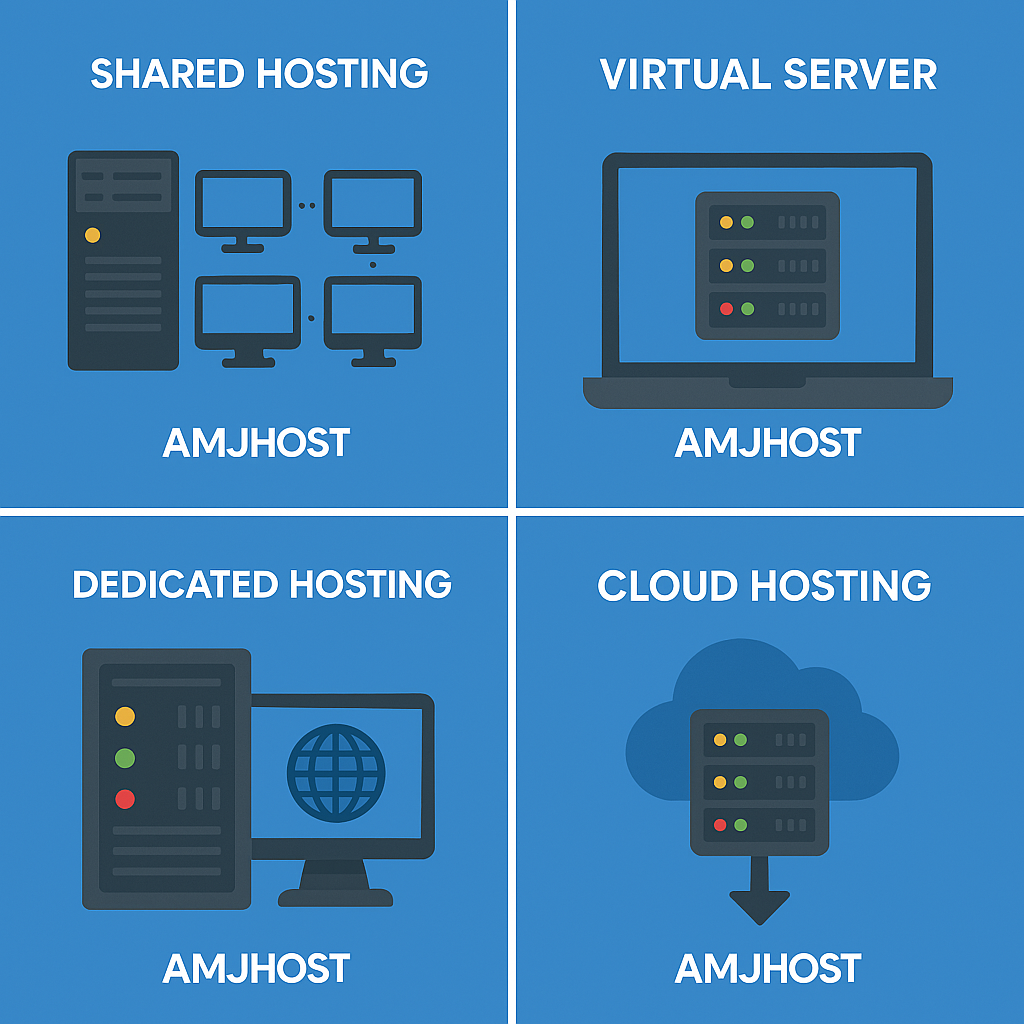A Beginner’s Guide to Hosting: Everything You Need to Know
If you're new to the world of websites, you may have heard the term “hosting” thrown around a lot. But what exactly does it mean, and why is it so important for your online presence? In this blog post, we’ll break down the basics of web hosting and explain why it matters—no tech jargon, just simple and easy-to-understand information for beginners.

What is Web Hosting?
At its core, web hosting is the service that allows your website to be accessed by people on the internet. Think of hosting as the land where your website "lives" and can be visited by others. Just like you need an address to send a letter, your website needs a "home" on the web to be visible.
When you create a website, all your content—images, text, videos, and other files—needs to be stored somewhere. Hosting providers offer you space on a server (which is a powerful computer) to store those files. When someone types in your website’s address (e.g., www.yourwebsite.com), the hosting server sends the content to their browser, allowing them to view your site.
Types of Web Hosting

1. Shared Hosting
Shared hosting is like renting an apartment in a big building. You’re sharing resources like storage and bandwidth with other websites, which helps keep costs low. It's a great choice for small websites, blogs, or businesses that don’t expect a lot of traffic.

2. VPS Hosting (Virtual Private Server)
With VPS hosting, you still share a physical server with others, but you get your own private section of it. It’s like having a private apartment in that same building. VPS hosting offers more control, better performance, and is ideal for growing websites with moderate traffic.

3. Dedicated Hosting
Dedicated hosting is the equivalent of owning your own house. You have an entire server to yourself, which gives you full control over its settings and resources. It’s perfect for large websites or businesses with high traffic that require maximum performance.

4. Cloud Hosting
Cloud hosting uses a network of virtual servers that work together to host your website. It's like having your website on multiple devices at once, so if one server goes down, the others can pick up the slack. Cloud hosting is great for businesses that need scalability and reliability.
5. WordPress Hosting
If you’re using WordPress to build your website, WordPress hosting is optimized specifically for that platform. This means faster load times, better security, and easy-to-use tools designed for WordPress users.
Why Do You Need Hosting?
Without hosting, your website can’t be accessed by anyone. Even if you’ve built a beautiful site, without a hosting service, it won’t be visible to the world. Hosting provides several benefits, including:
-
Uptime & Reliability: A good hosting provider ensures that your website is up and running 24/7.
-
Security: Hosting companies offer security features to protect your website from hackers or data breaches.
-
Scalability: As your website grows, a hosting provider can offer solutions to handle increased traffic and resource needs.
-
Speed: A reliable host ensures your website loads quickly, which is crucial for user experience and SEO.
How to Choose the Right Hosting for You
Choosing the right hosting provider can feel overwhelming, especially if you're new to the process. Here are a few factors to consider:
-
Your Website’s Purpose: Are you building a personal blog, an online store, or a large business site? The type of website you have will affect your hosting needs.
-
Budget: There are hosting options available for all budgets, from low-cost shared hosting to high-end dedicated hosting. Make sure to choose one that fits your financial situation.
-
Support: A good hosting provider should offer customer support whenever you need help. Look for providers with a reputation for responsive and helpful customer service.
-
Performance: Ensure the hosting provider offers good uptime (the time your site is live) and fast loading speeds. A slow website can frustrate visitors and hurt your rankings in search engines.
Conclusion
Understanding hosting doesn’t have to be complicated. It’s all about choosing the right service to ensure your website is available, secure, and performing well for your visitors. Whether you're just starting or expanding your online presence, the right hosting service is key to your website’s success.
If you’re ready to launch your website or upgrade your hosting plan, we’re here to help! Don’t hesitate to reach out with any questions—our team can guide you through the process and help you choose the best hosting solution for your needs.
